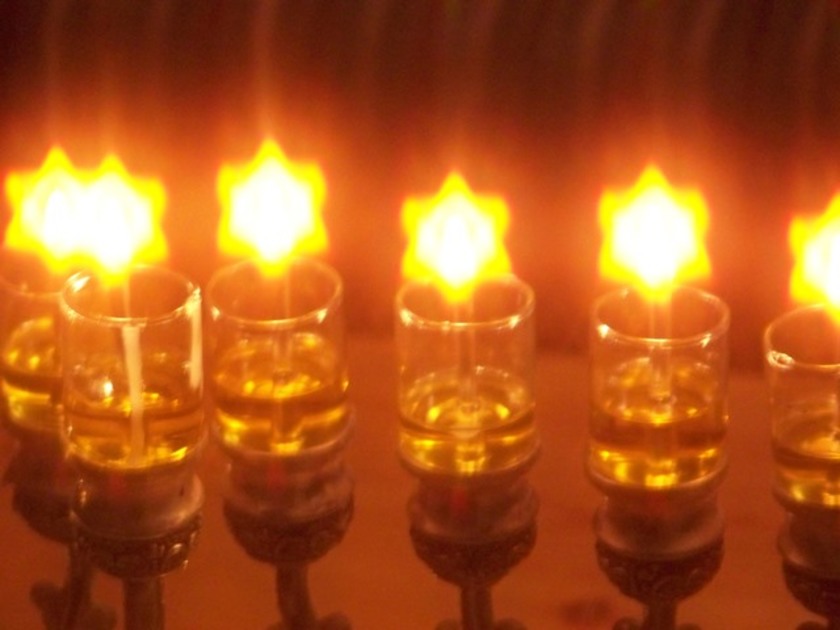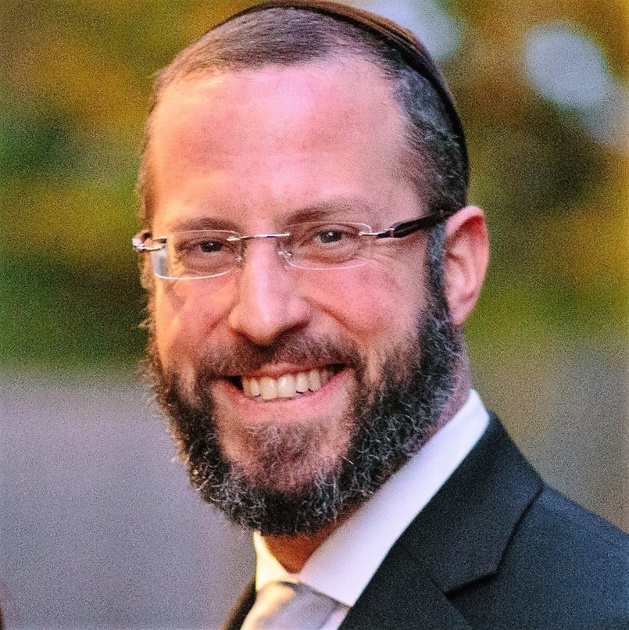
This Chanukah I received a present that came amidst a personally trying week.
The Center for Disease Control missed the prediction for the influenza vaccine this year. Despite their forecast of which strains of the flu might be most prevalent, they did not target the right types of virus. Consequently, there has been a widespread flu epidemic, even for people that have had the vaccination. My local community was hit hard – and my family did not escape unharmed. With a combination of the TamiFlu antiviral and time that heals my family is just starting to pull through Be”H. Yet, this week of Chanukah has been a combination of sleepless nights, extremely lethargic family members, and health, home, and professional demands that could not even be fulfilled by an octopus. With such a week, it has been difficult to focus on the internal joy and the external celebration of Chanukah. I feel physically and emotionally drained and the festive Chanukah mindset is somewhat elusive.
As I began to contemplate this post, I felt a desire to write about a topic dear to my heart regarding Chanukah; that became a Chanukah gift. A prevailing view of Chanukah is that it celebrates the return of Jewish sovereignty over Jerusalem and Israel. The Jews were religiously persecuted by Antiochus Epiphanes, Emperor of the Syrian – Greek Empire. Judah Maccabee and his courageous warriors miraculously waged battles against Antiochus’s armies that were greater in number, strength, skill, and training, and emerged victorious. At the conclusion of their victory, the Jews reconsecrated the Holy Temple in Jerusalem and experienced the miracle of the oil that marvelously burned for eight days.
Those developments are correct, but they can be more appreciated if they are taken in context of the Jewish history of the time. The Hasmonean military battle of Chanukah was imperfect and incomplete. Even after the Chanukah miracle, most of Israel was still held by the Syrian – Greeks, who still brutally persecuted and murdered Jews throughout the country. For years, and then decades, after the Chanukah victory, the Maccabees and their armies fought the violent and well-prepared armies of the Syrian – Greeks and the Hellenists. This is evidenced by several minor holidays celebrated during the Second Temple period, codified in the extramishnaic work Megilas Taanis, marking victories that the Jews had over the Syrian – Greeks in the years subsequent to the Chanukah miracle. Despite the eventual victory of the Hasmoneans after many years, the process was arduous and left much suffering and death in its wake. (An in depth exploration of that period can be found in many books describing it, including an engaging narrative in The History of the Jewish People – The Second Temple Era, published by Mesorah Publications.)
In the spectrum of the Jewish military history of that era, the small triumph over Jerusalem was almost a blip on the radar screen. The lives of the Maccabees and the Jews of that period were extremely difficult and agonizing. It almost seems ironic that the victory of Chanukah was given such attention by our sages, when Jewish persecution was still so rampant.
Chanukah encourages us to observe that even though Jewish life was very far from ideal even after their victory, the Jews were able to emphasize their gains. Life was personally and communally far from perfect. Yet, regaining Jerusalem, the Temple, and its service was still a cause for great rejoicing. Even in the face of a largely incomplete victory, our Sages saw the miraculous events of Chanukah in perspective. Joy can come from focusing on life’s successes, even when battles are still raging. Chanukah reminds us that victory, celebration, and triumph are often matters of focus and viewpoint rather than fact. Centuries later, we are able to revel in a victory that had not been flawless or complete.
A common reflection that is found in books on Jewish thought is that Chanukah represents me’at min haor docheh harbeh min hachoshech - that a little bit of light dispels a lot of darkness. It’s curious that they see Chanukah that way. Isn’t that a basic rule of physics? Darkness is defined as the absence of light. A little bit of light will negate the darkness that preceded it.
The message of the Jewish thinkers is that Chanukah is not about the laws of physics; it encapsulates that powerful lesson of perspective. In a purely rational world, a little bit of light pushes away a corresponding amount of darkness – and no more. Chanukah urges us to take the outlook of the Sages – to focus our gaze on a small amount of light and let it emanate. Allow the light in our glorious experiences to oust much more darkness than the rational mind would permit. Jump to a world that is not governed by the restricting laws of the physical universe – a universe where oil can burn for eight magical days. Appreciate the positive aspects in our lives and join the Jews of the Chanukah miracle. Let the lights we have in our own experiences shine and obliterate more darkness than they could on a rational plane. A little bit of light can miraculously and majestically dissipate the darknesses of the human experience.
As I sat down to write this piece, those ideas came back to me. The next time I said Al Hanissim and Hallel (the prayers expressing gratitude for the miracle of Chanukah) I appreciated the miracle and the perspective that Chazal (our Sages) were teaching us. Look at the light and focus on it, despite negative experiences that might beg for our attention. That was a Chanukah gift for me, and a perspective that can burn bright long after the physical menorah does.
Find this post and more like it at my blog, ShmuelMaybruch.com
 Previous
Previous

